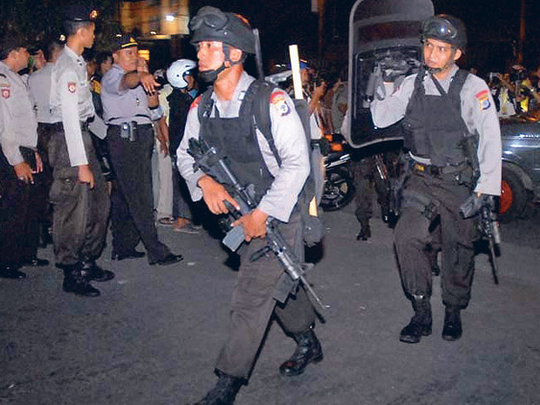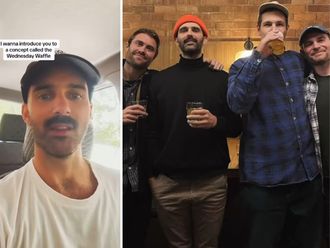
Jakarta: Indonesia's president said he hoped the arrest of the country's most wanted alleged terrorist would help cripple a cell accused of plotting a Mumbai-style attack.
The plot had included targeting foreigners at luxury hotels, and several high-profile assassinations.
However President Susilo Bambang Yudhoyono, reportedly a target of the plot, urged people to remain vigilant, and to report all suspicious movements.
Abdullah Sunata was led away in handcuffs with two aides, one of them an alleged expert bombmaker, after their hideouts in Central Java province were raided Wednesday.
He has been accused, among other things, of setting up a jihadi training camp in westernmost Aceh province and recruiting new members.
"We have successfully arrested Sunata and two other suspects," national police spokesman Major General Edward Aritonang told The Associated Press after the suspects' rented home in Cungkrungan, in Central Java province, had been searched.
Police said they found a bomb in a backpack and several revolvers and that an earlier raid on a house in nearby Girimulya village yielded explosives and weapons.
Police could not immediately confirm a Metro TV report that documents discovered during one of the searches indicated the men were planning an attack on the Danish embassy in Jakarta.
The attack was possibly due to anger about the 2005 publication of caricatures depicting the Prophet Mohammad (PBUH) in a Danish newspaper.
One suspect, identified as Yuli Harsono, was killed in a shootout with police.
Blocking burial
Neighbours, angry to learn that a suspected terrorist had been living in their midst, warned yesterday that hundreds of people were ready to block any efforts to bury him in the local cemetery.
They said Harsono was a former soldier who spent two years in jail for stealing gunpowder from the military's arsenal.
One resident, Bayu Prastowo said after Harsono's return in 2005, he shut them out and spent his free time with outsiders, often discussing the Quran at his house.
"We don't want our village to be remembered as a terror nest," said Pujianto, the village chief, who goes by one name.
"We'll ask his family to bury him somewhere else. If they refuse, we're ready to block the burial."
The country of 240 million has battled militants with links to the Southeast Asian network, Jemaah Islamiyah, since 2002, when extremists bombed a nightclub district on Bali island, killing 202 people, most of them foreign tourists.
There have been three other major suicide bombings since then. The most recent hit two luxury hotels in Jakarta a year ago, killing seven and injuring more than 50.
Though hundreds of suspected militants have been captured in a security crackdown in recent years, terrorists have proved resilient, with networks splintering and mutating.
Sunata's new cell, uncovered in February, was allegedly comprised of militants from several groups with ties to the Middle East and the Philippines.
Authorities said they found a cache of M-16 assault rifles, revolvers and thousands of rounds of ammunition at the Sunata cell's Aceh training camp.
They also said they uncovered plans to launch Mumbai-style terror strikes and to kill Yudhoyono and other high-profile targets.
Yudhoyono's spokesman Julian Aldrin Pasha urged people to alert authorities to all suspicious activities.
"The president hopes, with the arrest of Abdullah Sunata and others, all international links to Indonesian terrorist groups will be cut," he said.
Ken Conboy, a Jakarta-based expert on Southeast Asian terrorist groups, said Sunata's arrest was significant.
This was particularly because other top suspects, such as bombmaker Nordin M. Top, had been killed in police raids, meaning that valuable intelligence had been lost.












